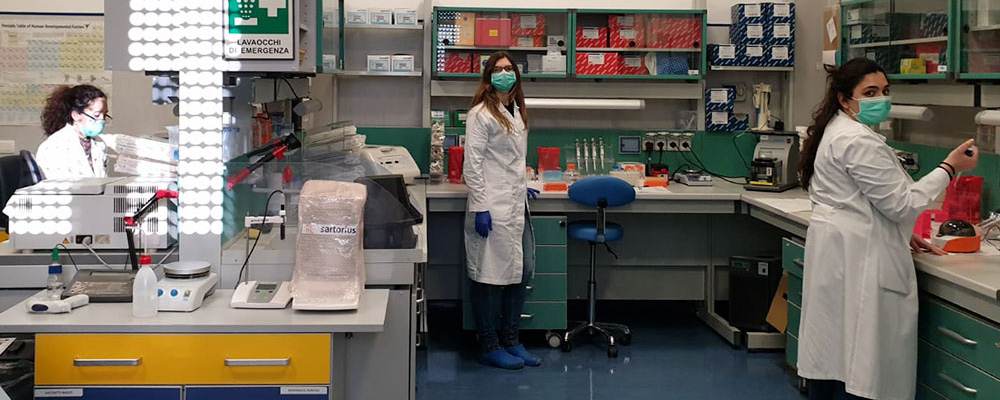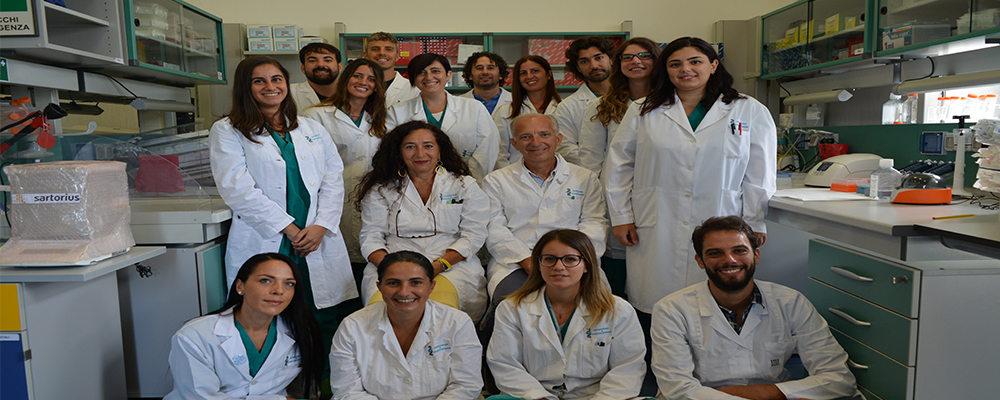In the Cellular and Molecular Oncology Laboratory (CMOL), which is hosted at University of Palermo, our goal is to conduct both basic and translational research programs aimed at: i) identifying thyroid, breast and colon cancer stem cells; ii) elucidating how changes in cellular and tissue organization, are associated with specific stages of carcinogenesis; iii) detecting and characterizing genetic/epigenetic hits that are fundamental for cancer susceptibility and during tumor progression; iv) defining the molecular mechanisms involved in the pathogenesis and progression of cancer; v) studying the role of tumor microenvironments (stromal and immune cell compartments) so that we may design innovative combinatorial anti-tumor therapeutic regimens; vi) developing rational approaches for treatments against advanced cancers.
CMOL is affiliated at the Department of Surgical, Oncological and Stomatological Sciences (DICHIRONS) and has the combined expertise and equipment, to carry out the main aims of the laboratory’s projects and research.
Specifically, the main research ideas are described as follow:
One project is aimed at demonstrating that Myc induces an alternative epigenetic program in mammary epithelial cells, which drives the activation of de novo enhancers and leads to a stem-like state. This research’s objective is to define a target therapy against cancer stem cells endowed with metastatic potential.
The laboratories have performed an in-depth study of the mechanisms that contribute to the cross-talk between MAPK/ERK and PI3K/AKT pathways in the induction of an/the acquired chemo-resistant phenotype, as well as p53- and Sam68-dependent activation of the DNA repair machineries, in colon and breast cancer, respectively.
Recently, we have been focused on the metabolism of CSCs, which possess peculiar adaptation abilities to a hostile environment during tumor progression. Moreover, we are trying to dissect the role of p53 and its post-translational modifications in adult cancers’ cancer stem cells, expending particular attention to colon cancer and inflammatory bowel disease (IBD). Finally, we are investigating the clinical impact of obesity on cancer progression (defined as central/visceral accumulation of fat in response to overnutrition). In particular the role of the adipose-derived mesenchymal stem cells’ paracrine activity in the reprogramming of cancer cells, toward a mesenchymal phenotype.
The Bioinformatics Unit supports the laboratories with statistical analyses and visualization techniques. They are also involved in the development of innovative bioinformatic tools to assist the researchers in extracting valuable information from biological/clinical data.
Although we can count on a very solid scientific background/expertise, we expect to grow in the coming years to expand and improve our knowledge, approach and increase our interdisciplinarity activities. To address these future modifications, the organization of the lab is continuously changing and adapting its research methods and training.
“A life without research is not worth living.”
(Socrate)
Research Funding Support














